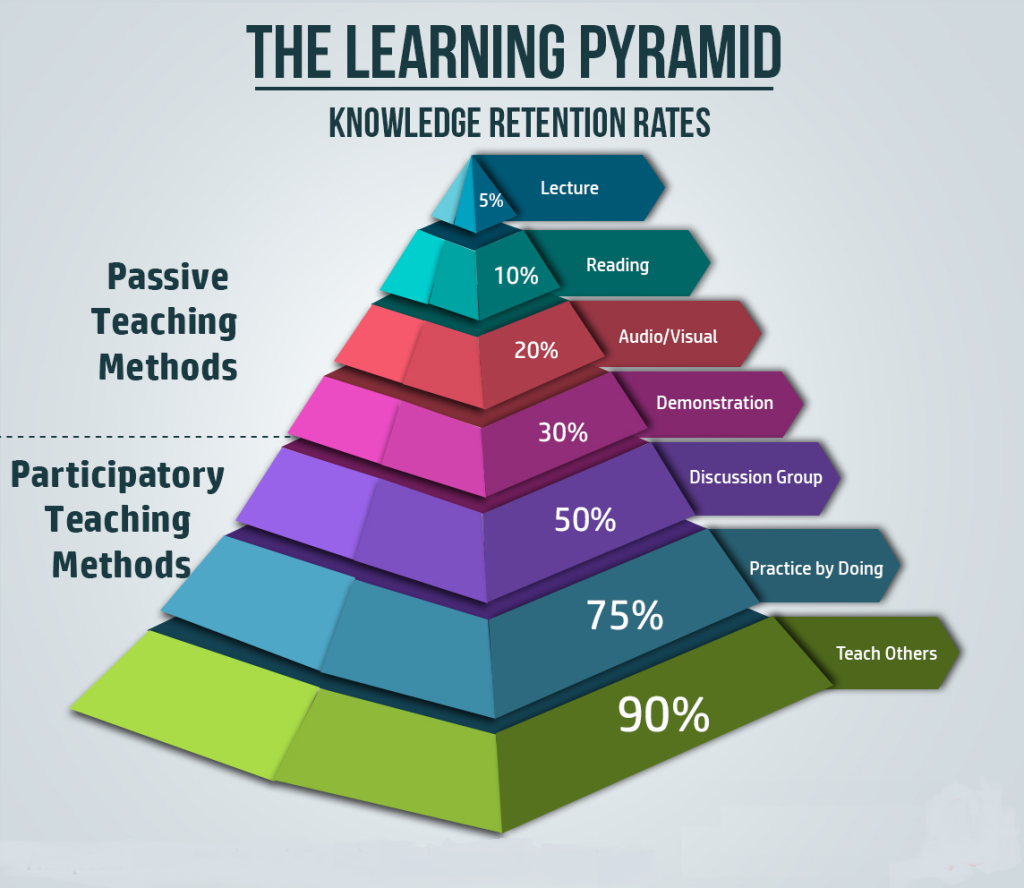Learning new (automation) skills
This blog post was published earlier in my (now defunct) weekly newsletter on January 3, 2023.
In this blog post, I wanted to share with you my views on and experiences with different ways to learn new skills. The examples I’ll give are related to testing and automation, but they apply to acquiring any new skill in general.
As you might know, I spend a large part of my working hours as a trainer, working with testers, developers and people in other roles. Through my workshops and training sessions, I’m helping them to get started with or improve their software testing, test automation and development skills. My opinions therefore might come off as biased. While that might be true, I’d also like to think I’m speaking from experience here.
The idea of writing about this topic was sparked by a debrief conversation I had with the learning and development manager of a client, right after I delivered a training session for them just before Christmas. He asked me about my training business and the competition I faced from all the free content that is available on the Internet, on many of the topics that I teach.
My answer? I don’t really see those resources as competition. Quite the opposite, actually: I use them to my benefit in my courses.
Let me elaborate on this for a bit. First of all, the individuals, teams and organizations that rely primarily on videos, blog posts and/or podcasts for their learning needs probably aren’t going to buy my training services anyway.
They may be looking for very specific knowledge (how to perform action X with tool Y, for example), and while many of my courses do feature hands-on exercises, teaching people tricks with tools isn’t the goal of my courses, nor is it for most other trainers I know.
Another reason might simply be budgetary: my training services come at a price, and the text, audio and video content that is out there is (almost) free. If you compare these two types of learning as equal, it’s a simple decision: the free option will always win.
But here’s the catch: they aren’t equal. Live training courses offer a lot in terms of the learning experience that consuming on demand, predefined content simply doesn’t.
Like test automation, learning and development have their own pyramid, which looks like this (picture courtesy of https://www.scienceoutside.org/post/pushing-your-teaching-down-the-learning-pyramid)

Consuming content through blog posts, videos or podcasts is typically very passive, with the corresponding low retention rates. Truly learning a new skill requires getting actively involved with the concepts being taught, for example through facilitated discussion, hands-on exercises and ‘show and tell’. Only then will you get to the higher retention rates that you’ll need to be able to apply a new skill or piece of knowledge in the context of your own work.
It’s probably no surprise to you that (good) live training courses score much higher on the retention rate chart, since these courses typically contain plenty of opportunities for interaction with the trainer and with fellow participants, hands-on exercises to apply what you have learned, and the opportunity to demonstrate your work and explain, again to both the trainer and the others in the course, how you approached a task or solved a problem that was presented to you.
Now, I don’t mean to say that blog posts and videos are useless for learning. Quite the contrary, they can be fantastic sources of new knowledge. However, to increase the chance of the knowledge to actually stick, you’ll need to not just consume the content, you need to process and apply it, preferably somewhere right at the edge of your comfort zone.
When you’re doing this on your own, at your own pace, using self-guided material, achieving a decent chance at actually learning something will take a lot more discipline and self-motivation.
Or, as I sometimes put it, it’s not very likely you’ll actually learn something by consuming your education content the way you consume the latest episodes of your favourite Netflix series.
For me, as a trainer of live courses, these resources are fantastic ways to augment what I teach. Being able to point to other people’s content is very powerful as a means of saying:
“Here’s a blog post backing up what we just learned”
or
“If you’re looking for a different approach to this problem, you can watch this video”
So, by all means read that blog post, watch that video, listen to that podcast. But if you want what you read, see or hear to stick, you’ll also likely need deliberate practice.
Nobody ever learned how to swim just by watching other people swim…
Do you share these views? Or do you have a radically different opinion? I’d love to hear from you, so feel free to share your views by leaving a comment or sending me an email.
"